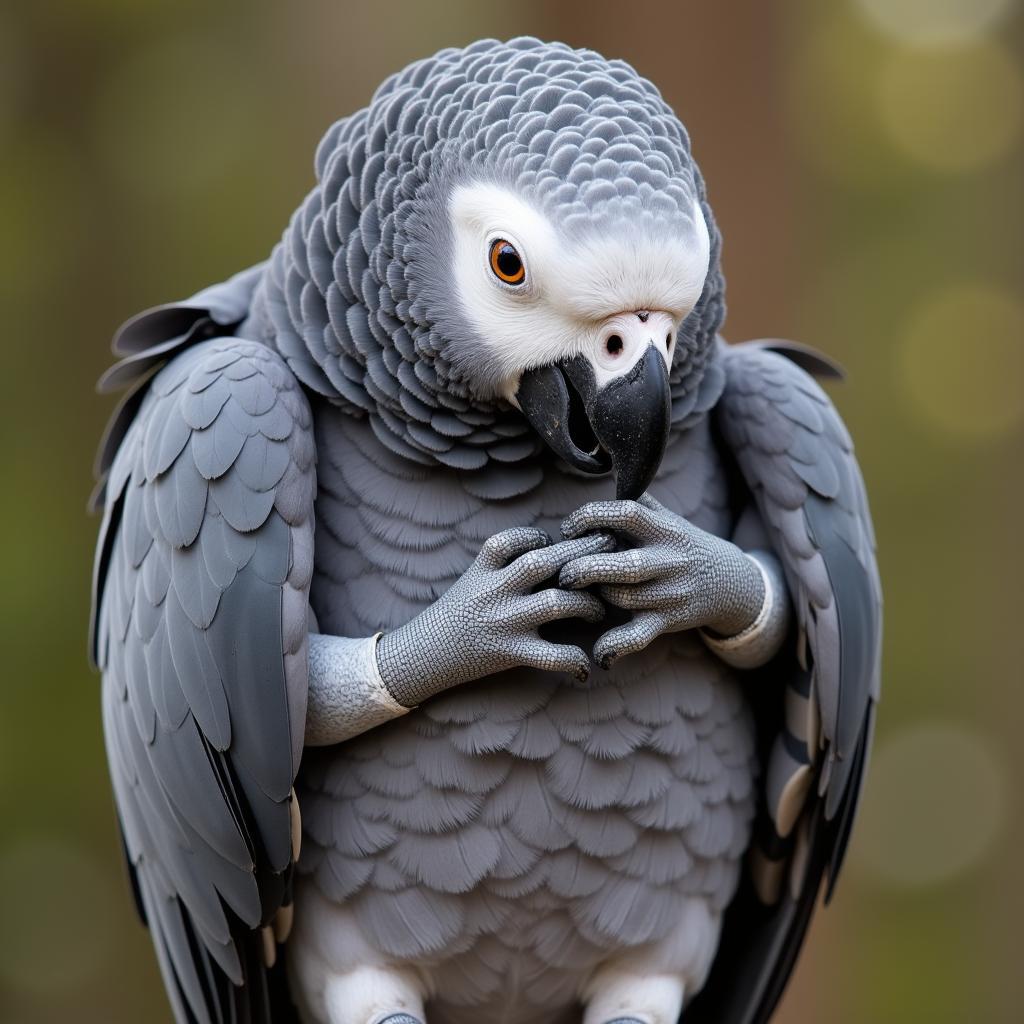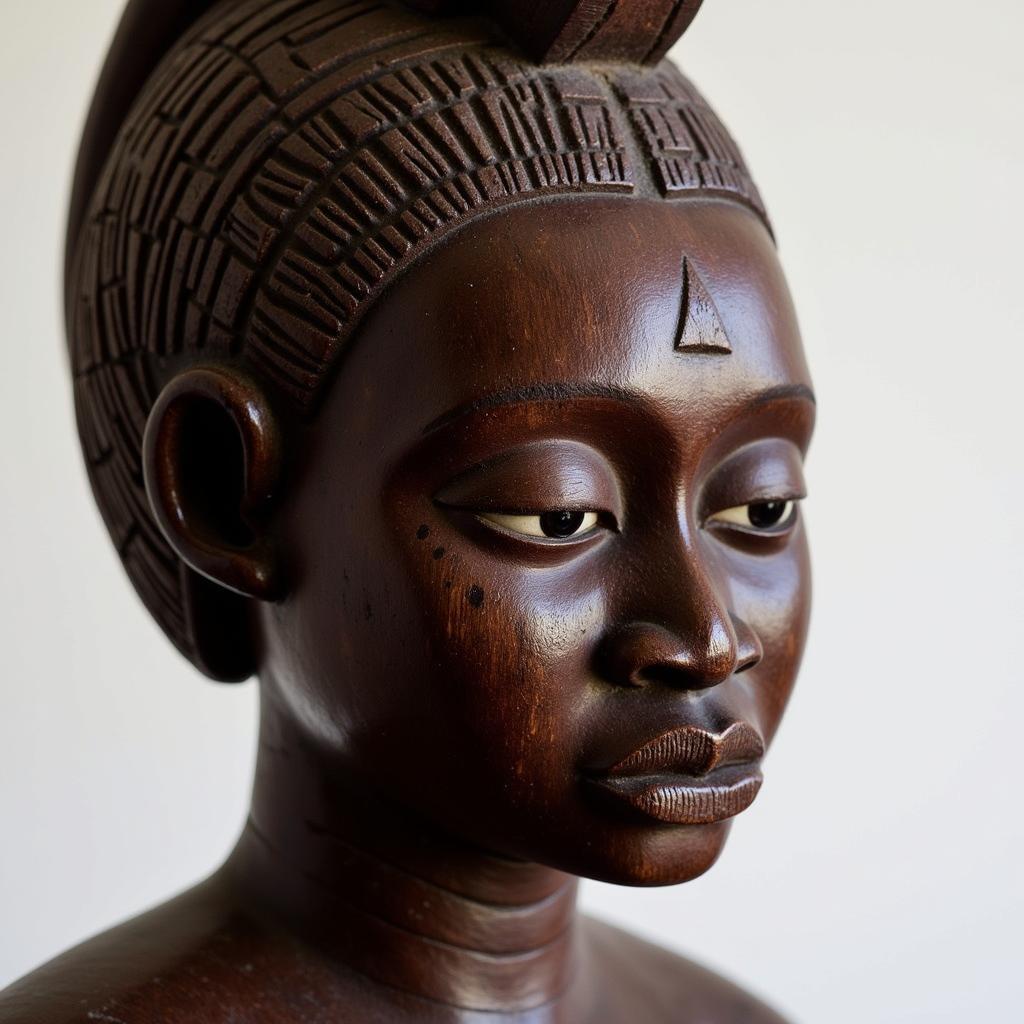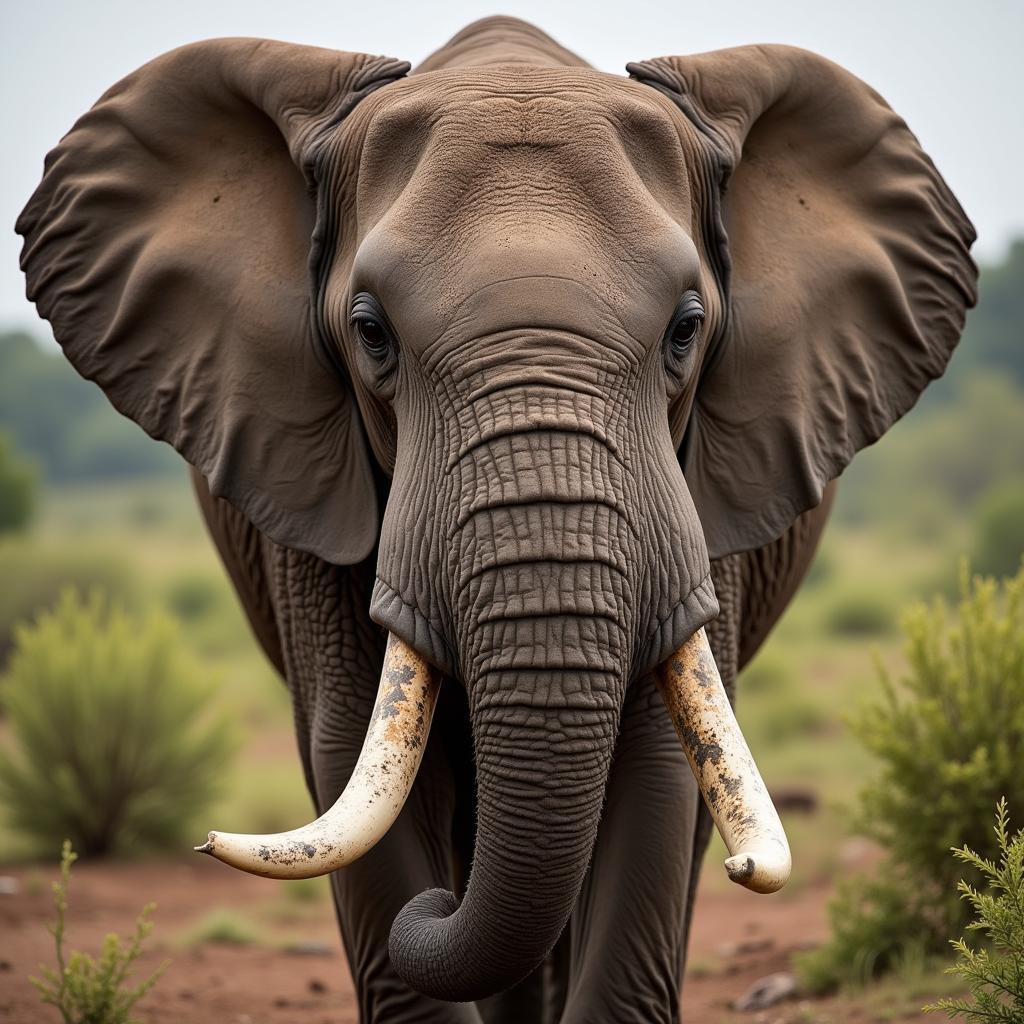The Ultimate Guide to African Grey Grooming
African Grey Grooming is essential for the health and happiness of these intelligent and sensitive birds. Beyond simply keeping them looking their best, regular grooming contributes significantly to their physical and psychological well-being. From beak and feather care to nail trimming and bathing, this guide will delve into the essential aspects of African grey grooming.
Understanding the Importance of African Grey Grooming
Grooming is a natural behavior for African greys. In the wild, they spend a considerable amount of time preening their feathers, maintaining their beaks, and keeping themselves clean. This instinctual behavior serves several crucial purposes, including parasite control, thermoregulation, and social interaction. In captivity, we must provide them with the resources and support they need to continue these essential practices. Providing proper African grey grooming ensures their physical health, reduces the risk of infections, and promotes a positive mental state. Soon after acquiring an african dog pet, you’ll need to adjust to a new routine of caring for your companion.
Beak Care: Maintaining a Healthy Beak
A healthy beak is crucial for an African grey’s ability to eat, play, and preen. Overgrown beaks can lead to difficulty eating and can even cause injury. Providing a variety of toys and perches made of natural materials, like wood and cuttlebone, can help them maintain a healthy beak length.
Feather Care: The Art of Preening
Feathers are vital for an African grey’s insulation, flight (even if clipped), and overall health. Regular preening helps them distribute natural oils, remove dirt and parasites, and maintain the integrity of their plumage. Encourage preening by providing a healthy diet, regular bathing opportunities, and a stimulating environment. Consider an african grey care guide for more details on their overall needs.
Nail Trimming and Wing Clipping: Essential Grooming Procedures
Nail Trimming: Keeping Claws in Check
Overgrown nails can make it difficult for African greys to perch comfortably and can even lead to foot problems. Regular nail trims are essential. While some birds may tolerate having their nails trimmed at home, it’s often best to consult with an avian veterinarian or a professional groomer, especially if you’re new to African grey grooming. There are specific techniques involved to ensure the safety and comfort of your bird.
Wing Clipping: A Controversial Topic
Wing clipping is a common practice, but it remains a subject of debate among bird owners. Some owners believe it enhances safety by preventing escapes, while others argue it restricts natural behavior and can lead to psychological distress. The decision to clip your African grey’s wings should be made in consultation with an avian veterinarian and after careful consideration of your bird’s individual needs and your living situation.
Bathing: A Refreshing Experience for Your African Grey
Bathing is an important part of African grey grooming. It helps remove dirt and dust, keeps their feathers clean and healthy, and provides a source of enrichment. African greys generally enjoy bathing and can be offered a variety of methods, such as showering with them, using a spray bottle, or providing a shallow dish of water. Remember to use lukewarm water and ensure the room is warm and draft-free.
Dr. Anika Patel, Avian Veterinarian, recommends, “Regular bathing not only contributes to feather health but also provides mental stimulation for these intelligent creatures. It’s a natural behavior they engage in readily when given the opportunity.” African greys, much like some african house cat breeds, require specific care.
Why is grooming important for African greys?
Grooming is crucial for their physical and psychological health. It helps prevent infections, maintains healthy feathers and beak, and provides mental stimulation.
How often should I bathe my African grey?
Most African greys enjoy bathing several times a week. However, the frequency depends on the individual bird and the environment.
Can I clip my African grey’s wings myself?
While it’s possible, it’s generally recommended to consult with an avian veterinarian or a professional groomer, especially for first-time wing clipping. Improper technique can cause injury.
What should I do if my African grey’s beak is overgrown?
Consult with an avian veterinarian. They can safely trim the beak and advise on preventing future overgrowth. Some breeds, unlike the african dog no bark, can be quite vocal.
Grooming Your African Grey: A Bond-Building Experience
African grey grooming is more than just a chore; it’s a chance to bond with your feathered companion. By incorporating these practices into your routine, you’re not only ensuring their physical well-being but also strengthening the bond you share. It’s important to understand the nuances of african dog mating if you plan to breed them.  African Grey Parrot Preening its Feathers
African Grey Parrot Preening its Feathers
In conclusion, African grey grooming is an essential part of responsible bird ownership. By understanding the importance of beak care, feather maintenance, nail trimming, wing clipping (if chosen), and bathing, you can help your African grey live a long, healthy, and happy life. Remember to observe your bird’s individual needs and consult with an avian veterinarian for any specific concerns.
What are some signs of an unhealthy beak in an African grey?
Overgrowth, flaking, discoloration, or any signs of discharge can indicate a beak problem.
What type of perches are best for maintaining beak health?
Natural wood perches of varying diameters and cuttlebone are excellent choices.
How can I encourage my African grey to preen?
Provide a balanced diet, regular bathing opportunities, and a stimulating environment with plenty of toys.
What are the potential risks of improper wing clipping?
Improper wing clipping can lead to injury, imbalance, and psychological distress.
How can I make bath time enjoyable for my African grey?
Use lukewarm water, ensure the room is warm and free of drafts, and offer a variety of bathing methods to see what your bird prefers.
Professor Charles Msonge, Ornithologist, adds, “Understanding the natural grooming behaviors of African greys in the wild helps us provide the best possible care for them in captivity.”
For further assistance or inquiries regarding your African Grey’s care, please contact us at Phone Number: +255768904061, Email: [email protected], or visit our location at Mbarali DC Mawindi, Kangaga, Tanzania. Our customer care team is available 24/7.

